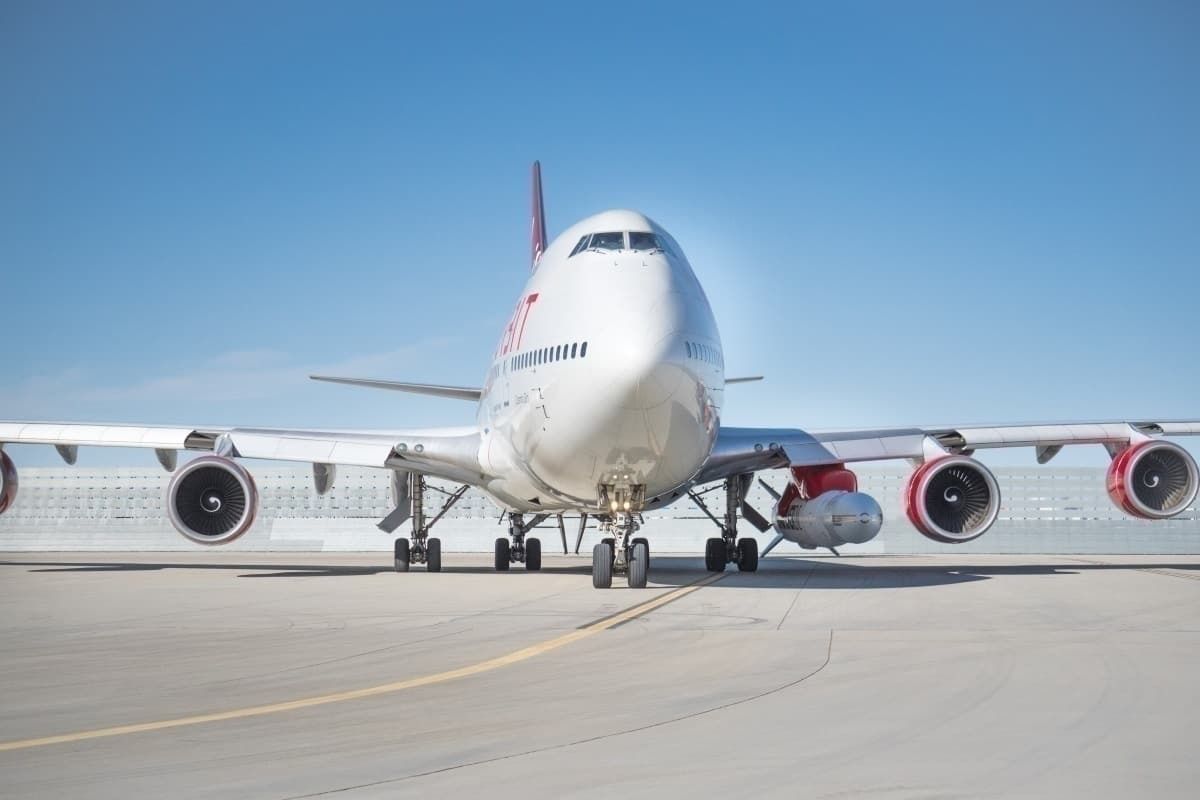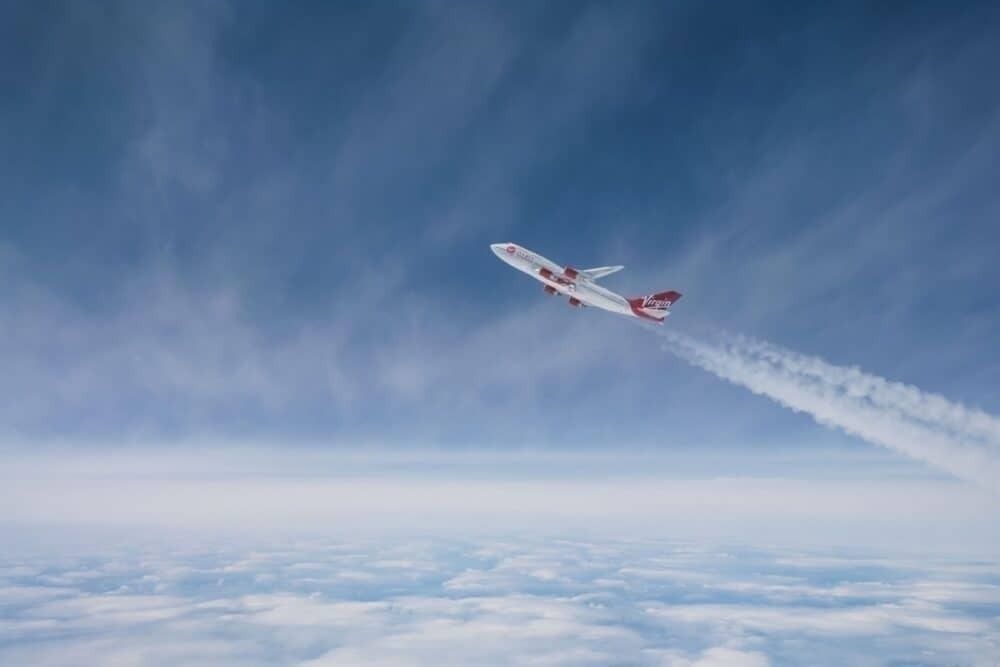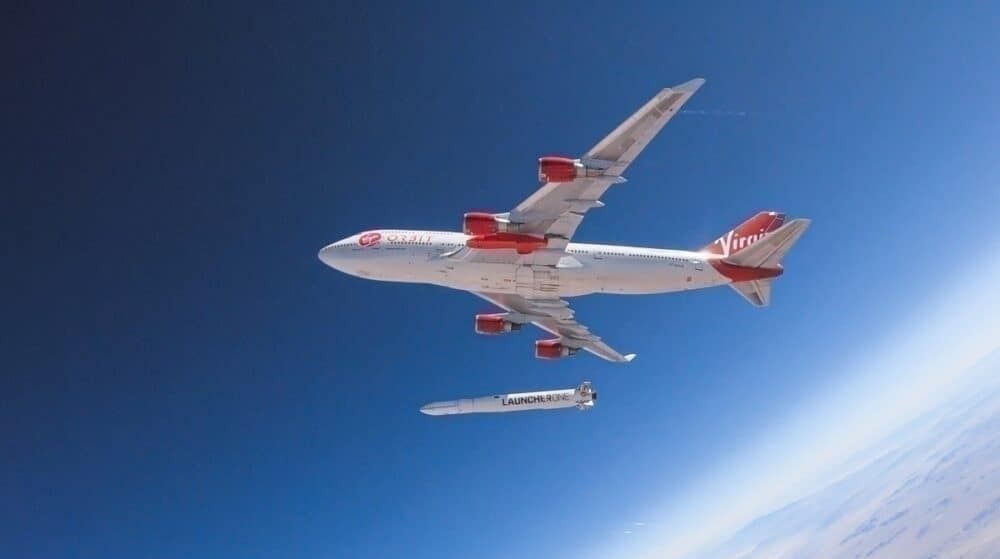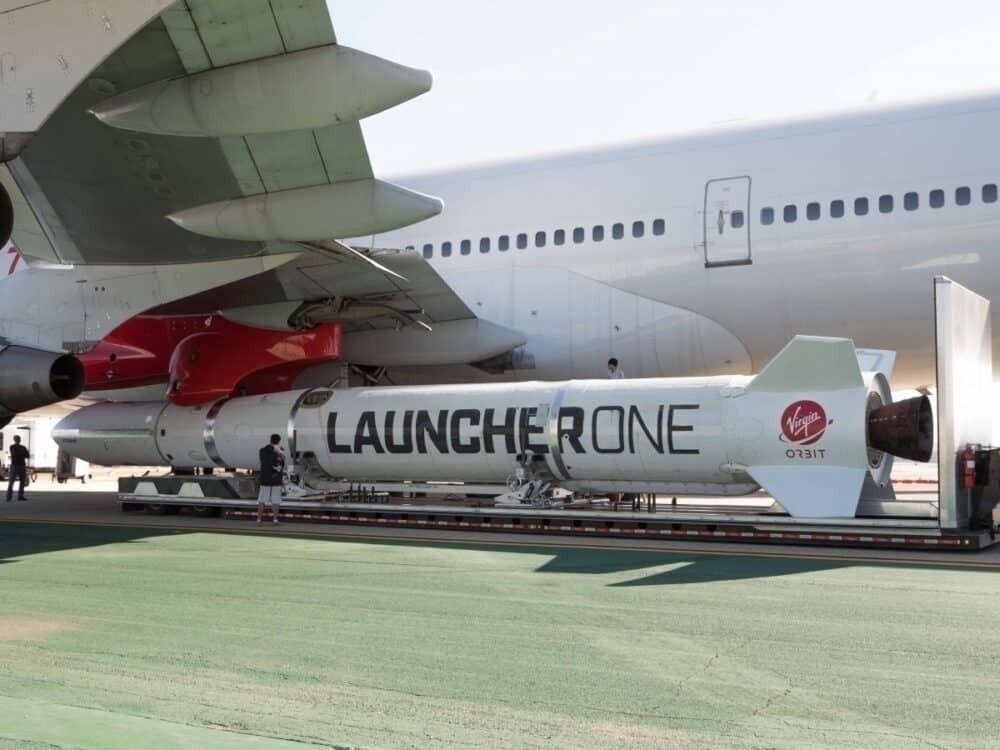VOX Space, he subsidiary of Virgin Orbit that operates the LauncherOne has been selected by the US Space Force to provide three separate launches for low Earth orbit (LEO) vessels. The contract, worth an estimated $35m, will see dozens of small satellites sent into orbit under the Space Force’s Orbital Services Program-4 (OSP-4).
US Space Force becomes Virgin Orbit customer
While lots has been happening with Virgin Orbit’s LauncherOne program, including a breakthrough flight test of Cosmic Girl last weekend, the company has been vying for future orders for its service. Now, it looks as if the US Space Force will become the latest customer, as AirForceMag reports a signed contract for no fewer than three separate launches to take place.
Want to stay up to date with inflight connectivity news? Sign up for our monthly IFC newsletter.
The Orbital Services Program-4 (OSP-4) will see Virgin Orbit’s subsidiary VOX Space launching 44 satellites into low Earth Orbit, beginning in October 2021. The contract, said to be worth $35m, was announced on the 10th April, just prior to the weekend’s flight tests.
OSP-4s first round of launches will include a range of experimental technologies, designed to boost the military’s progress in areas such as communications and space domain awareness. The Space and Missile Systems Center explained in its press release,
“One such payload is QUEYSSAT, the No. 10 ranked [DOD Space Experiments Review Board] experiment and a cooperative effort between the U.S. Air Force Research Laboratory and the Canadian Department of National Defence. This experiment will demonstrate and quantify the potential to improve Earth-satellite quantum channel uplinks via adaptive optics, expand quantum network concepts, and exploit this capability for defense applications.”
First contract for Cosmic Girl
These launches will use the LauncherOne rocket system on board Virgin’s modified Boeing 747, ‘Cosmic Girl’. The aircraft will ascend to around 35,000 feet, before shooting the payload into low Earth orbit. Each launch will propel more than a dozen small satellites into orbit, firming up Virgin’s position as the market leader in fast, responsive space vehicle launches.
Want to stay up to date with inflight connectivity news? Sign up for our monthly IFC newsletter.
Virgin Orbit’s CEO, Dan Hart, commented on the contract saying,
“With the space domain more contested than ever, it’s crucial that we find ways to enable those responsible for space security to act quickly and effectively. Ultimately, we believe that affordable and responsive launch helps keep everyone safer—in part by creating a major disincentive for adversaries to work against existing satellites and space systems.”
OSP-4 aims to launch 20 missions over the next nine years. This first one is coded as STP-S28 and is hoped to provide the Space Force with a means to shorter launch times for payloads. The Space and Missile Center is aiming to award the contract for the next batch of launches by the end of this year.
While VOX Space look to be a strong contender to secure more contracts from the SMC, the company will have some strong competition to fight off. SpaceX, X-Bow and Firefly Black, to name just a few, are also vying for position for the STP-S29 and beyond launches. Time will tell if the innovative Boeing 747 launch platform has the right recipe to build Virgin’s space business from here.




